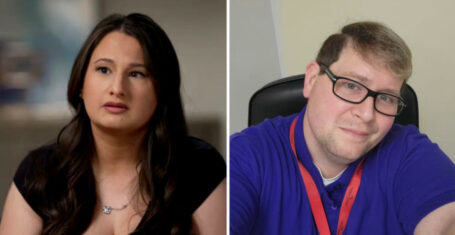
The Descent of Bot
ABBIE SAUNDERS watches five actors do the robot. In the English Faculty basement, no-one can hear you scream.
Judith E. Wilson Studio – English Faculty, 2nd-5th March (except 4th), 7.30pm (10pm on 5th), Free Admission
Directed by Rani Drew
[rating: 2/5]
Ambitious, thought-provoking; but without a Star Wars-sized budget, things looked shady from the start for Rani Drew’s original play The Descent of Bot.
When we entered the Judith E. Wilson Studio, itself reminiscent of a dodgy sci-fi set, the actors had already taken their positions on stage. Dressed in Slipknot-worthy white jumpsuits, they held their positions until the lights dimmed. Then it all became very strange, if not a little frightening.
All credit due, the idea is a fantastic one. “Humans have polluted Earth to the extent that it has become uninhabitable. They are now decamping from the planet for a newer one in the galaxy. But being God-fearing beings, humans want to leave God’s planet clean. How do they do it?” The actors do the best they can with the script and direction, but, since all five are cast as robots, I find it too easy to describe their acting as robotic.
The staging is interesting: robo-actors on-stage and humans in a film behind them. Each character was interacting with themselves throughout the play as dialogue was conducted between stage-robots and screen-humans. This went well until I realised that the characters on the screen were supposed to be speaking with American accents. You see, they’re working for NASA. I personally feel that we could have compromised the official name of a space station in order for the actors to speak with their own accents. It was during the film that the actors glowed brightest, particularly Michael Southgate, who even carried off his Americanism fairly well. But for the sake of Woodcock, O’Brien, and Reardon, English English would have been beneficial; their acting during this section was good; their accents were not and distracting for it.
The automatonic movements and voices for the first half of the play felt contrived and mechanic, but how can the actors avoid this? Ironically, the play enacts its own biggest problem; these robots don’t want to be like humans, but, unfortunately for the script, actors are necessarily human and there’s no getting round this. Humans acting like robots cannot be done effectively, and this is why CGI is an imperative addition to any serious sci-fi movie.
On so many levels this play was close to hitting the mark; the writing was ambitious, philosophical, and thought-provoking; the acting, on many levels, demonstrated talent and ability, but the script was as incompatible with the actors as the idea was with the environment. As a big-budget project, this would be ingenious, and in any other play I’m sure I would be raving about the standard of acting, but, as it stands, the production as a whole didn’t quite cut it.









































